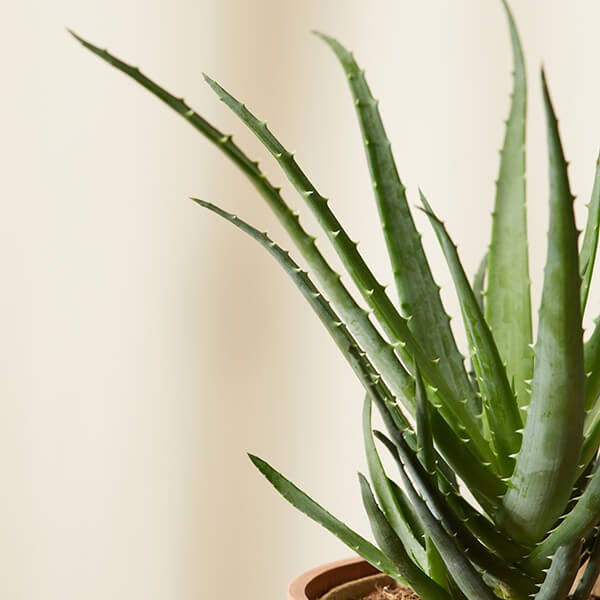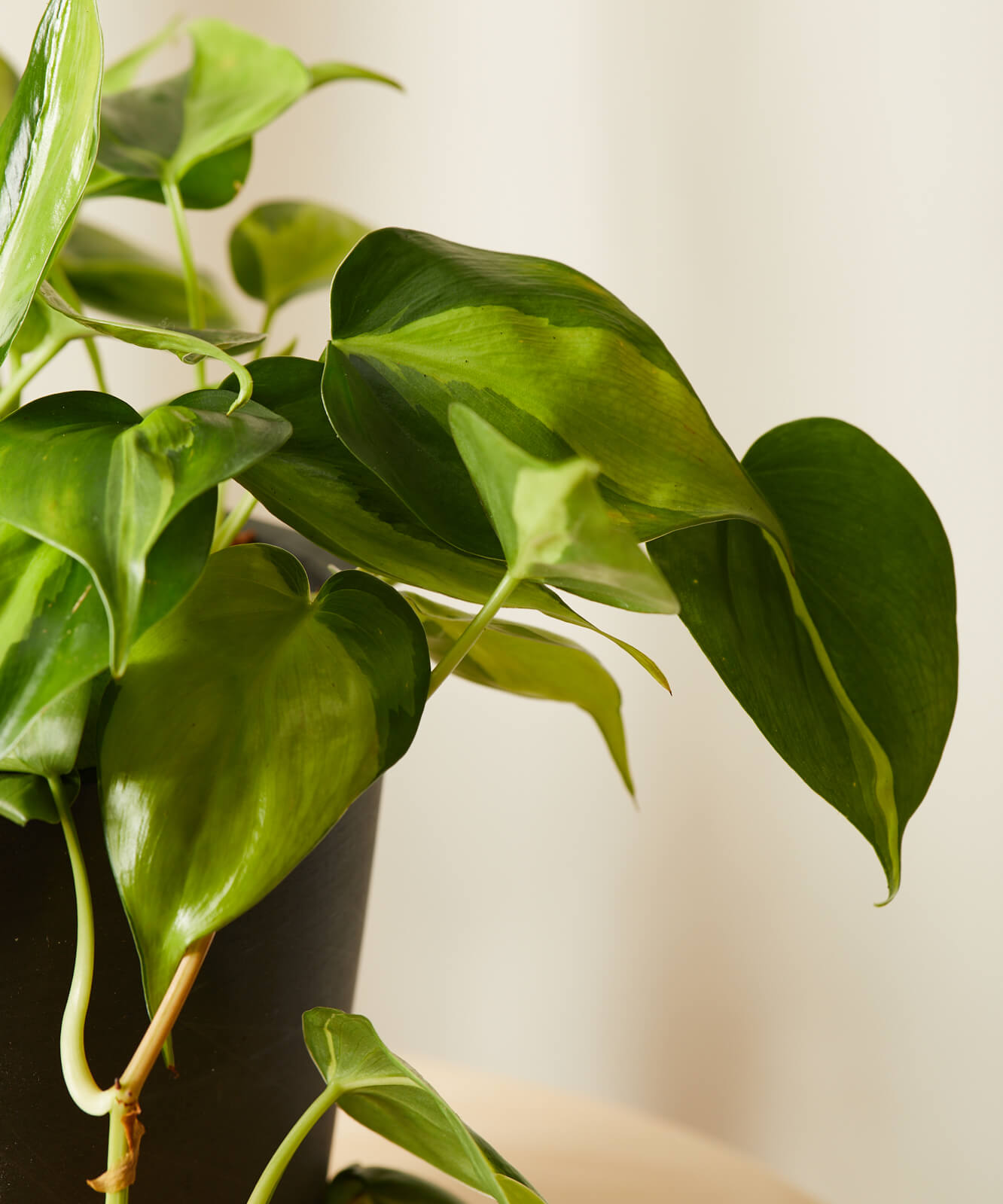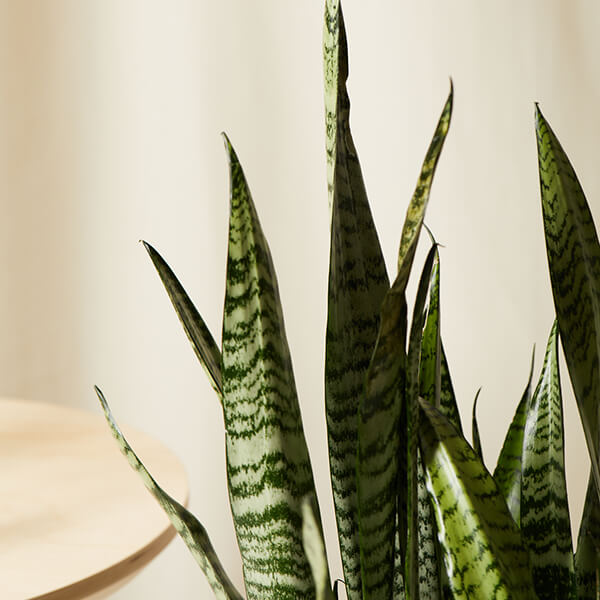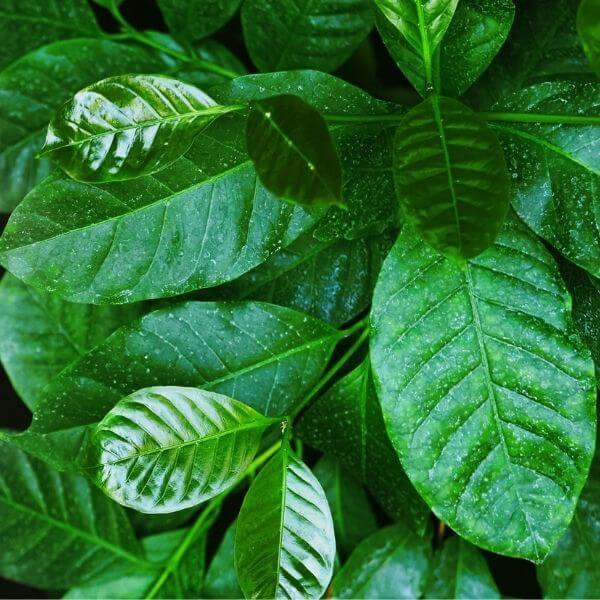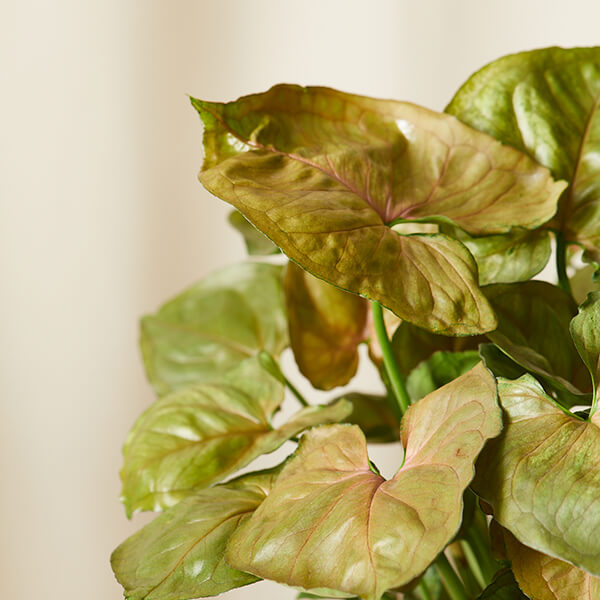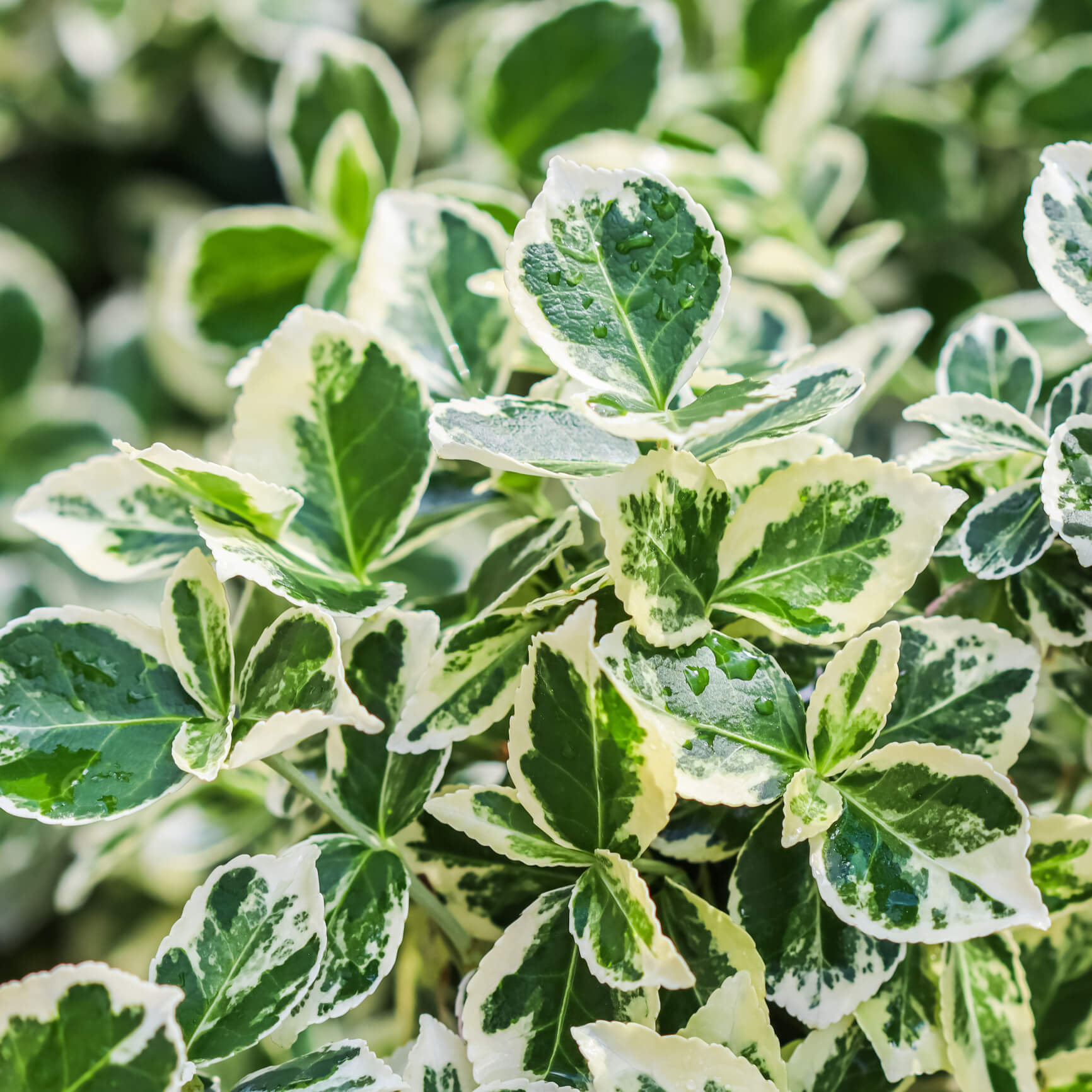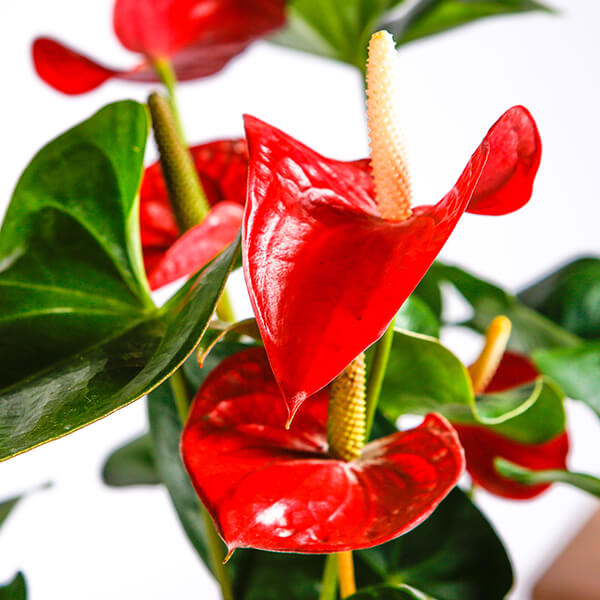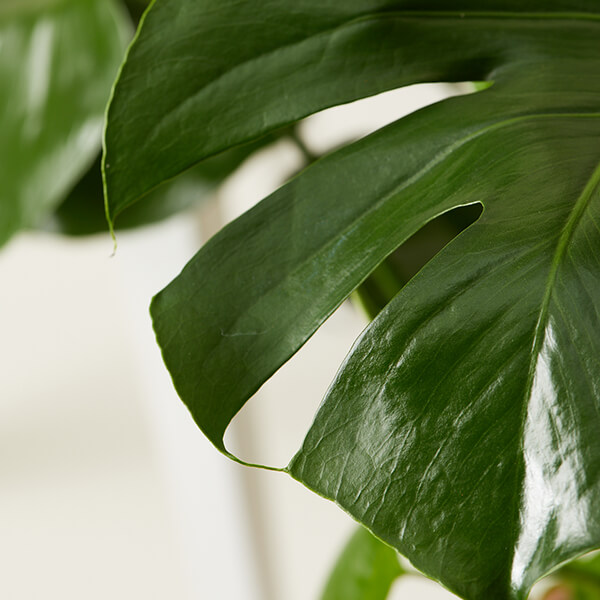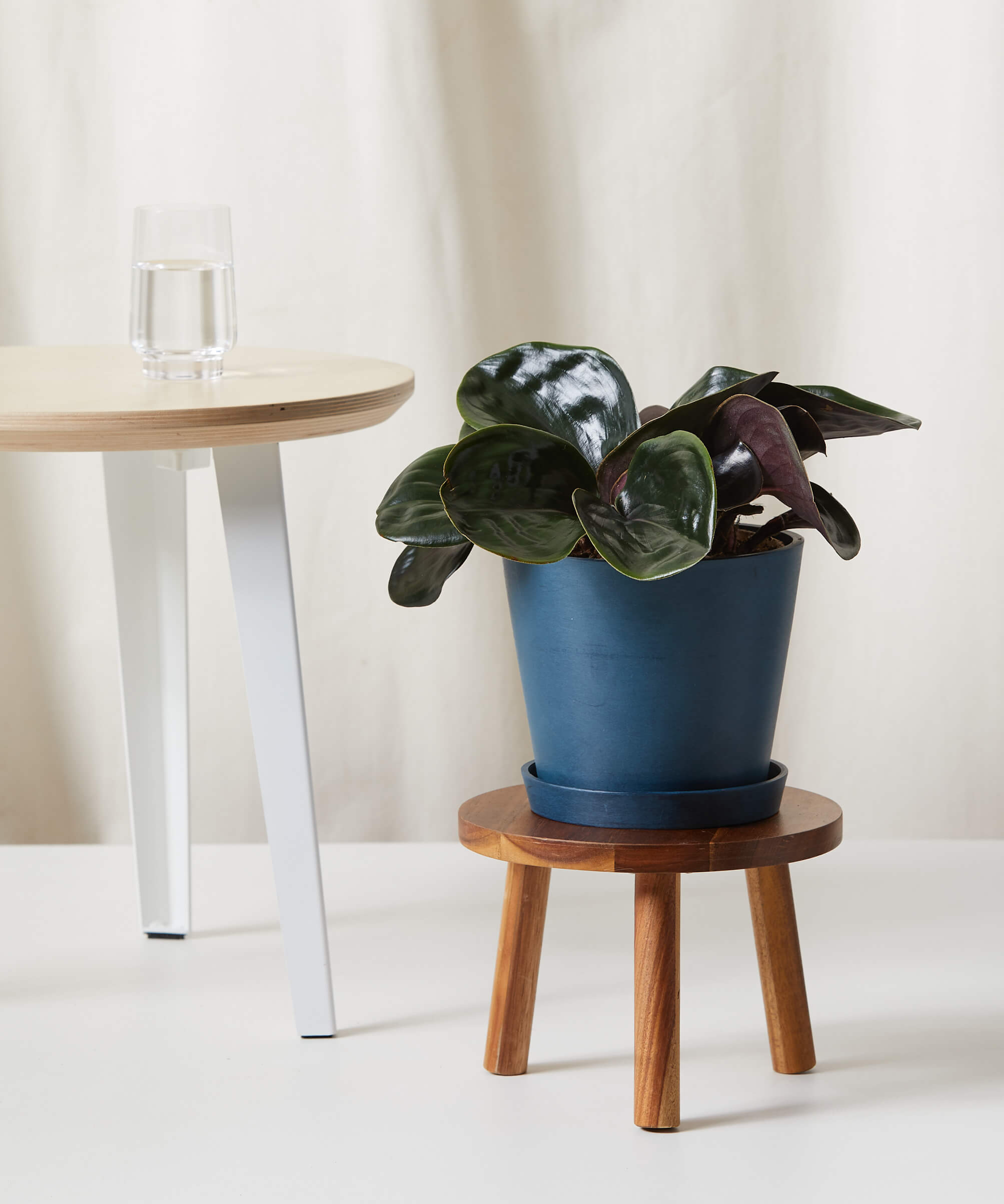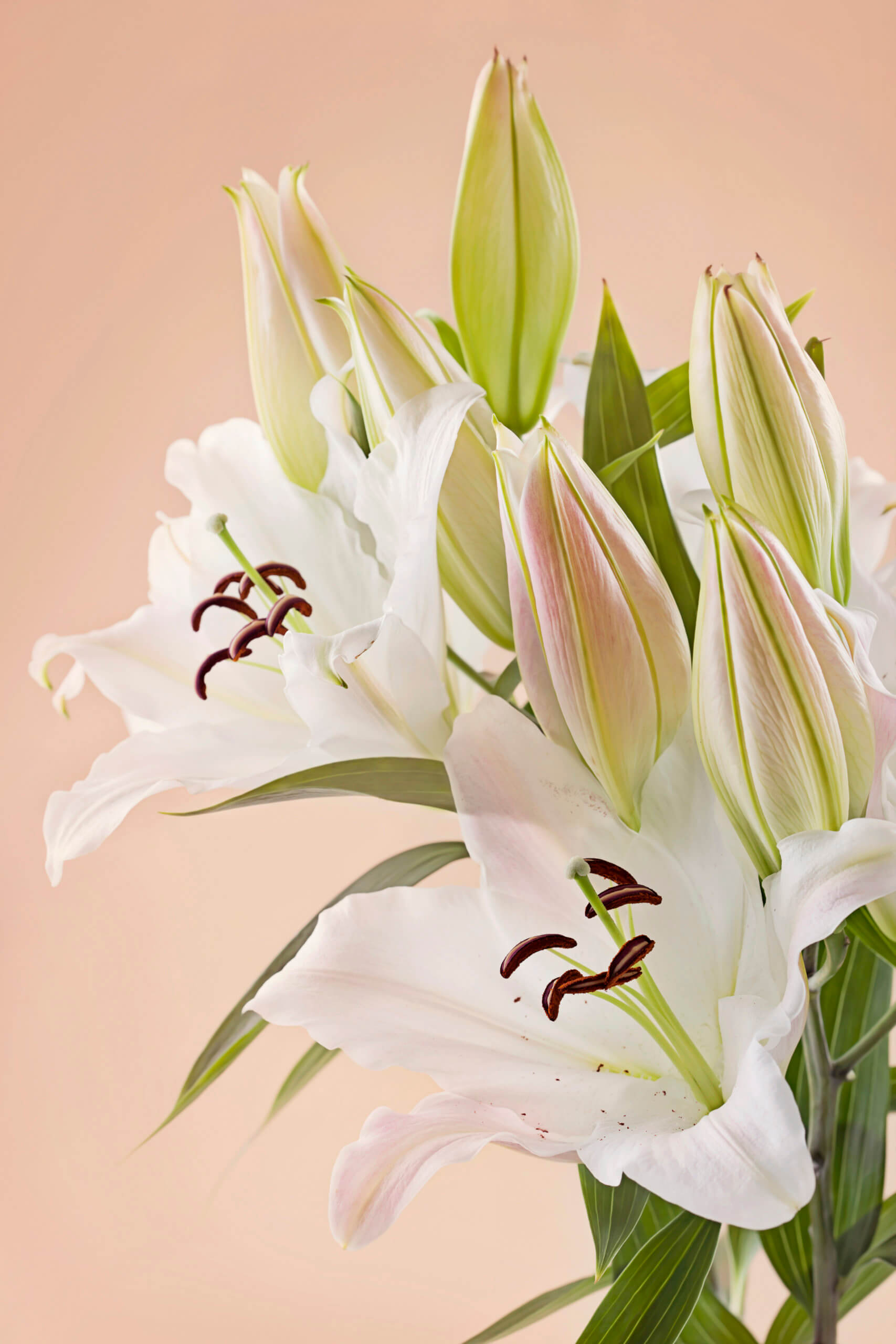Search
119 results found with an empty search
- Aloe | Plantastic
< Back Aloe Light: Your Aloe plant prefers bright indirect light to full sun. Insufficient light will cause the leaves to droop downwards. If you don’t have a location with ideal lighting for your plant, use a Grow Light ! Water: Water your Aloe when the soil volume is 100% dry. Water thoroughly until it flows out of the drainage hole. Discard excess water to discourage root rot. Pet-Safe: This plant is toxic to pets and humans if ingested. Previous Next
- Philodendron Heartleaf | Plantastic
< Back Philodendron Heartleaf Light: The Philodendron Heartleaf can cope with low light conditions, but grows faster and produces more leaves bright indirect light. Do not put it in direct sunlight–the sun will burn the foliage. Water: Water your Philodendron when the top 50%-75% of the soil is dry. Water until liquid flows through the drainage hole at the bottom of the pot and discard any water that has accumulated in the saucer. Pet-Safe: Philodendron leaves are toxic to pets and humans. Typically, ingestion will result in swelling of the lips and tongue, and stomach irritation with possible vomiting. Previous Next
- Sansevieria | Plantastic
< Back Sansevieria Light: Your Snake Plant can tolerate any light level. The brighter the light, the faster it will grow. Always acclimate the plant over a few weeks if moving from indirect to direct light to avoid scorching the foliage. Water: Water only when the soil volume is 100% dry. It’s better to err on the dry side. Water thoroughly to encourage a healthy root system and discard any excess water in the saucer. Pet-Safe: Snake Plants are toxic to humans and pets if ingested. Previous Next
- Coffee Plant | Plantastic
< Back Coffee Plant Light: Your Coffee Plant prefers bright indirect sunlight, having developed in the lower levels of Ethiopian forests. Too much direct sunlight can brown the leaves. Water: Your Coffee Plant enjoys frequent waterings. Water when 25% of the soil volume is dry. Water until liquid flows through the drainage hole at the bottom of the pot and discard any water that has accumulated in the saucer. Pet-Safe: Coffee Plant leaves are toxic to both pets and humans. Previous Next
- Arrowhead Plant | Plantastic
< Back Arrowhead Plant Light: Your Arrowhead Plant prefers bright indirect light but can adapt to low light. Direct sun may burn the leaves. Water: Water when 50%-75% of the soil volume is dry. Water until liquid flows through the drainage hole at the bottom of the pot and discard any water that has accumulated in the saucer. Pet-Safe: Your Arrowhead Plant is considered toxic to humans and pets if ingested. Previous Next
- Euonymus | Plantastic
< Back Euonymus Light: Your euonymus will love bright, indirect sunlight. Avoid placing it in direct sunlight as this may cause the leaves to burn and turn white. Eastern exposure or a few feet back from a southern or western window is ideal. Water: Water when 50% of the soil volume is dry. Water thoroughly until you see it flow out of the drainage hole. Discard any excess water to avoid root rot. Your euonymus needs less water during the winter dormant season. Pet-Safe: The euonymus plant is toxic to humans and pets if ingested. Previous Next
- Anthurium | Plantastic
< Back Anthurium Light: Your Anthurium prefers bright indirect light. Direct sun may burn the leaves. The more light the plant receives, the more blooms your plant will produce. Water: Water your Anthurium when 50-75% of the soil volume is dry. Water until liquid flows through the drainage hole at the bottom of the pot and discard any water that has accumulated in the saucer. Overwatering causes yellow leaf tips and underwatering causes brown leaf tips. Pet-Safe: This plant is considered toxic to pets and humans if ingested. Previous Next
- Monstera | Plantastic
< Back Monstera Light: Your Monstera can grow just about anywhere in your home! It tolerates low light, but grows faster and becomes more dramatic in a spot with indirect bright light. That said, avoid strong, direct sunlight because it may burn the leaves. If you don’t have a location with ideal lighting for your Monstera, use a Grow Light. Water: Water your Monstera when the top 50–75% of the soil is dry. Water until liquid flows through the drainage hole at the bottom of the pot and discard any water that has accumulated in the saucer. Pet-Safe: Monstera leaves are mildly toxic to pets and humans. Typically, ingestion will cause mouth and stomach irritation and possible vomiting. Previous Next
- Geo Plant | Plantastic
< Back Geo Plant Light: Your Geo Plant prefers bright indirect light. Avoid extended exposure to direct sunlight which may cause its leaves to scorch. Water: Water when 25-50% of the soil volume is dry. Water slowly, allowing it to soak into the soil until it drips out of the drainage hole. Discard any excess water that accumulates in the saucer. Pet-Safe: This plant is considered non-toxic and pet-friendly. Previous Next
- Easter Lily | Plantastic
< Back Easter Lily Light: Easter lilies love to be placed in indirect, bright sunlight. Too much light will burn the foliage, but too little light will cause the slow decline of the plant. Eastern light or a few feet back from a southern window is ideal. Water: Easter lilies prefer to stay somewhat moist. Water when 50% of the soil volume is dry. Water thoroughly and discard excess water to avoid root rot. Pet-Safe: Easter lilies are toxic to humans and pets if ingested. All parts of the Easter lily, including the pollen, are extremely toxic to cats. Previous Next
